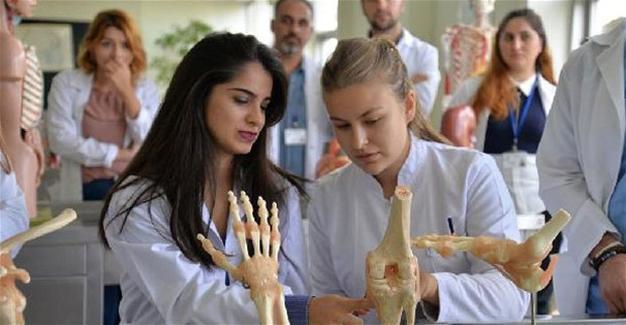Turkish university importing dead bodies from US for medical students amid shortage

Uludağ University in the northwestern Turkish province of Bursa has been importing dead bodies from the U.S. for over 120,000 Turkish Liras each, as its Faculty of Medicine is eager to prevent its students from graduating without working on an actual human body.
Speaking at an event marking “Anatomy Week,” the faculty’s Department of Anatomy stressed the urgent need of donations of dead bodies.
“Because cadavers cannot be found in Turkey, we are importing them from the U.S. Each one costs 120,000 liras,” said Prof. Erdoğan Şendemir from the department.
He stressed the importance of working on dead human bodies for medical students, adding that there would be no such expensive need to import the bodies if a proper system was in place. However prosecutors and municipalities are reluctant to notify the faculty about dead bodies available, he said.
“The cadaver carries significance not only for medical students, but also for the training of specialists. A medical student needs to see all the organs and tissues in their original places and in a way that’s close to reality,” Şendemir said.
“A medical student needs to see all the variations, meaning the structural changes from human body to body. No abstract education can fill the place that is filled by a cadaver,” he added.
Şendemir noted that people can decide to donate their bodies to science when they are alive, without the necessary consent of their relatives after they die.
Also speaking at the same event, Prof. İhsaniye Coşkun said they were currently working to increase the sensitivity of the public regarding the donating of human bodies after death for use by medical researchers.
 Uludağ University in the northwestern Turkish province of Bursa has been importing dead bodies from the U.S. for over 120,000 Turkish Liras each, as its Faculty of Medicine is eager to prevent its students from graduating without working on an actual human body.
Uludağ University in the northwestern Turkish province of Bursa has been importing dead bodies from the U.S. for over 120,000 Turkish Liras each, as its Faculty of Medicine is eager to prevent its students from graduating without working on an actual human body.